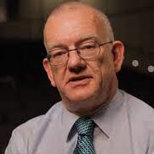Dennis O’Keeffe, R.I.P.
SUGGESTED


Dennis worked as a schoolteacher before moving on to the polytechnic sector, where he taught for many years. Over the years his academic work took a number of directions and involved work with several institutions. His great professional interest was always the sociology of education and he was always a fierce critic of the way that educational quality had been undermined by misguided ideas and practices. During the 1990s he undertook perhaps the major project of his academic life, a study of truancy. He was able to show that truancy was vastly more widespread than most realised and that the great bulk of it was not simple hostility to education by delinquent pupils but a perfectly rational decision by pupils to avoid certain subjects and teachers while attending other classes. The fault for him lay in the rigid control of schools by the state and a range of misguided pedagogical philosophies. These findings were of course unwelcome to both left and right at the time and in particular the Department of Education and so they were ignored.
In addition to this work Dennis undertook a number of very important major editing and translation projects for the Liberty Fund of Indianapolis, making use of his fluent command of French to rediscover the great tradition of French Classical liberalism. He edited and translated Benjamin Constant’s Principles of Politics and worked on the Fund’s continuing six volume complete works of Bastiat. He also translated the complete text of Gustave de Molinari’s ‘Evenings on the Rue St Lazare’ which the Liberty Fund will be bringing out in the near future.
Dennis however was not only an armchair intellectual. His deep hostility to communism and commitment to liberty led him to take part in supporting resistance to communism in Poland, a country he felt a great affinity with for various reasons. He worked with the Jagiellonian Trust from 1984 onwards and made many trips to Poland, meeting and supporting people there and helping to organise events. He formed particularly close connections with the circle of dissident intellectuals in Crakow and this led to several close friendships.
In his association with the IEA Dennis was a valued author and Fellow. He contributed to the collection Catholic Social Teaching and the Market Economy and was himself the editor of the collection of essays Economy and Virtue in 2005. He wrote a penetrating monograph in 1999 on the topic of Political Correctness and Public Finance, arguing that so-called political correctness was just one aspect of a more general corruption of academic life by reliance upon government funding. He and his wife Mary also edited a special issue of Economic Affairs and the IEA published his inaugural lecture as Professor of Education at the University of Buckingham on the subject of Education and Modernity. All of these were a major contribution to thinking about something he was deeply concerned with, the connection between liberty and ideas of the virtuous life.
This reflected what was for Dennis the central aspect of his life along with his family, his devout and thoughtful Catholic faith. It was this that inspired his academic work and his other, varied intellectual interests. Although a strong supporter of a market economy as the best for human welfare he was never motivated by arguments that were simply about efficiency. Rather he had a humane understanding of economic arguments that saw a free economy as necessarily involved with a particular vision of what a good life would be. His personal ‘fusion’ of conservatism and libertarianism was an expression of this.
He is a great loss to the world of scholarship but those who had the privilege of knowing him personally will feel other losses even more keenly. He was a man who was full of life, a fascinating companion and raconteur, enormous fun to be with, a kind and loyal friend, and a source of all kinds of knowledge and insight (his ability for example to find the appropriate Shakespeare quote for any topic or occasion was remarkable). Our thoughts are with his family and particularly his wife Mary and his son Matthew.
1 thought on “Dennis O’Keeffe, R.I.P.”
Comments are closed.





One cannot fail but to admire a man who knows his Shakespeare.